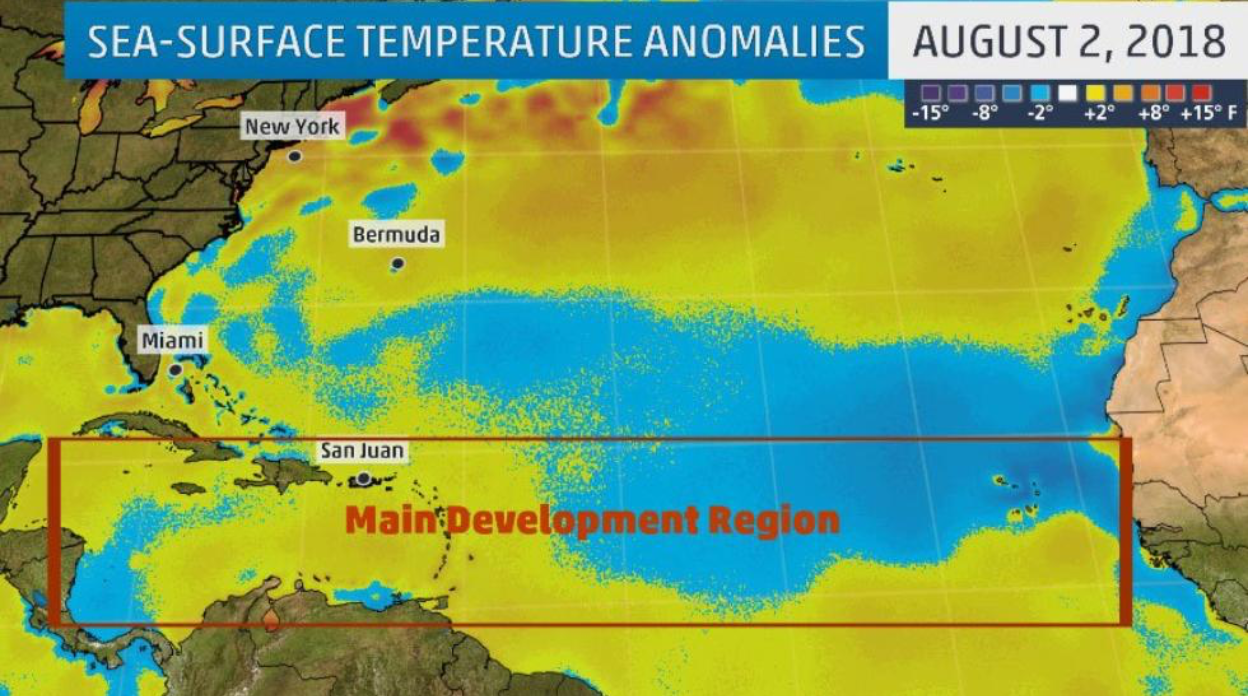This year’s Atlantic hurricane season started early and it started strong, but it may end up as something of a fizzle. That’s according to the latest report from the experts at Colorado State University, who now are predicting that we’ll have fewer named storms than average for the remainder of this hurricane season, which ends Nov. 30.
Now the Colorado State forecast calls for 12 named storms this year, way under last year’s 17. Three have already formed in the Atlantic, and two – Beryl and Chris – became hurricanes. The new forecast calls for only nine more for the rest of the season; just three of them will become hurricanes and one a major system with winds of 111 mph or more.
Dr. Phil Klotzbach, head of the Colorado State tropical forecast team, says that stronger wind shear, dry air and cooler water temperatures are all responsible for the downgraded estimate of hurricane activity.
Vertical wind shear in July was much stronger than usual in the Caribbean, and this usually correlates to fewer hurricanes, he said. The tropical Atlantic also has been drier than average in July, and this too leads to fewer hurricanes. And water temperatures in the tropics, measured during the last ten days of July, are the coldest of any similar period since 1981. This also usually means fewer hurricanes. For more:




